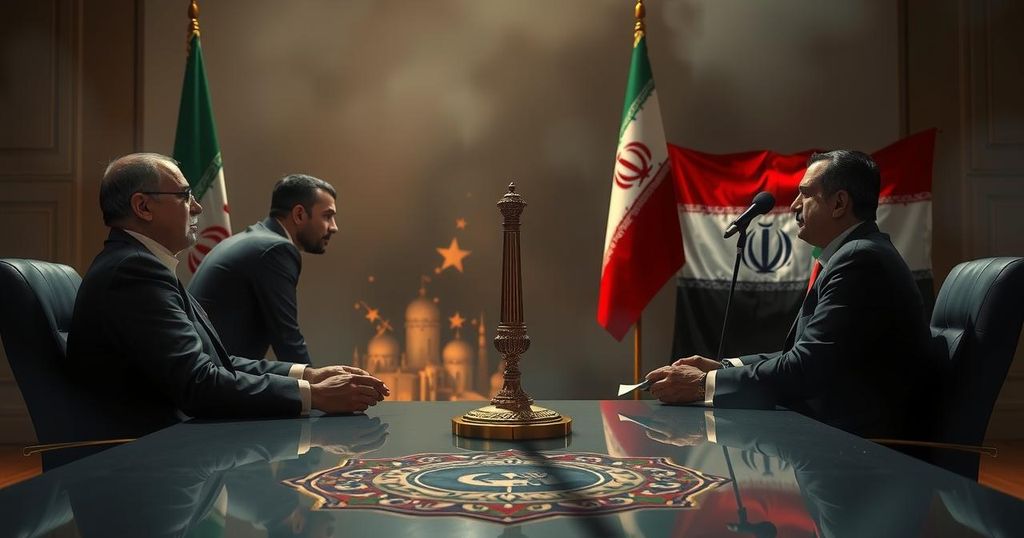Following the fall of Bashar Al-Assad, Iraq and Iran are working to rebuild ties with the new Syrian administration. Iraqi officials express a willingness to engage with the transitional government while emphasizing non-intervention in Syrian affairs. Iran has opened channels with the new leadership to avert hostilities. This political shift signals potential changes in regional power dynamics.
In the wake of the recent overthrow of Bashar Al-Assad in Syria, key allies Iran and Iraq are working to re-establish diplomatic relations with the new Syrian administration. An unnamed top Iraqi official stated that Baghdad is keen to engage and coordinate with the current leadership chosen by the Syrian populace. Acknowledging the rapid and unexpected changes in the region, Iraqi government spokesperson Basim al-Awadi emphasized that Iraq does not intend to interfere in Syrian matters but warned that troubling the situation of Syrian minorities could have repercussions in Iraq.
Diplomatic channels are reportedly being opened between Iraq and the new Syrian transitional government, focusing on several pressing issues. These include discussions surrounding shared borders, the welfare of Iraqi refugees in Syria, and the preservation of Shia religious sites in the Syrian capital. Iraqi political analyst Mohamed Nanaa noted that Baghdad’s proposals align with the objectives of opposition factions in Syria, indicating a mutual recognition of the new political landscape.
From Iran’s perspective, the government initially delayed its response following the downfall of Assad, but subsequently stated that it respects the Syrian people’s right to decide their future without external interference. Iranian officials are reportedly seeking communication with leaders of the newly formed government to prevent any deterioration in relations. Tensions exist within Iran regarding the handling of the crisis, particularly about the perceived abandonment of the Assad regime, highlighting potential fears over losing influence in the region.
Critics of Assad’s government suggest that his decision to distance himself from Iran contributed to his regime’s collapse, citing a failure to meet commitments to Iranian interests. Experts propose that this shift could herald significant changes in the regional dynamics, signaling an unprecedented moment that may redefine relationships in the Middle East. Both Iran and Iraq are thus navigating a complex landscape to foster stability following the upheaval in Syria.
The ongoing political turbulence in Syria reached a critical juncture with the recent ousting of Bashar Al-Assad’s regime after over five decades of rule. The fall of Assad has prompted neighboring countries, particularly Iraq and Iran—longstanding supporters of his government—to reassess their diplomatic and strategic ties with Syria. The situation reflects broader regional implications, affecting the balance of power and the relationships between various state and non-state actors in the Middle East, particularly regarding the rights and safety of minorities within Syria and ongoing refugee crises.
In conclusion, the changes in the Syrian political landscape present both challenges and opportunities for Iraq and Iran. As these nations seek to establish communication with the new Syrian leadership, their actions will be critical in shaping the future political environment in the region. Observers note that this moment could signify a pivotal shift in the Middle East’s dynamics, particularly concerning influence, stability, and inter-state relations moving forward.
Original Source: www.newarab.com






